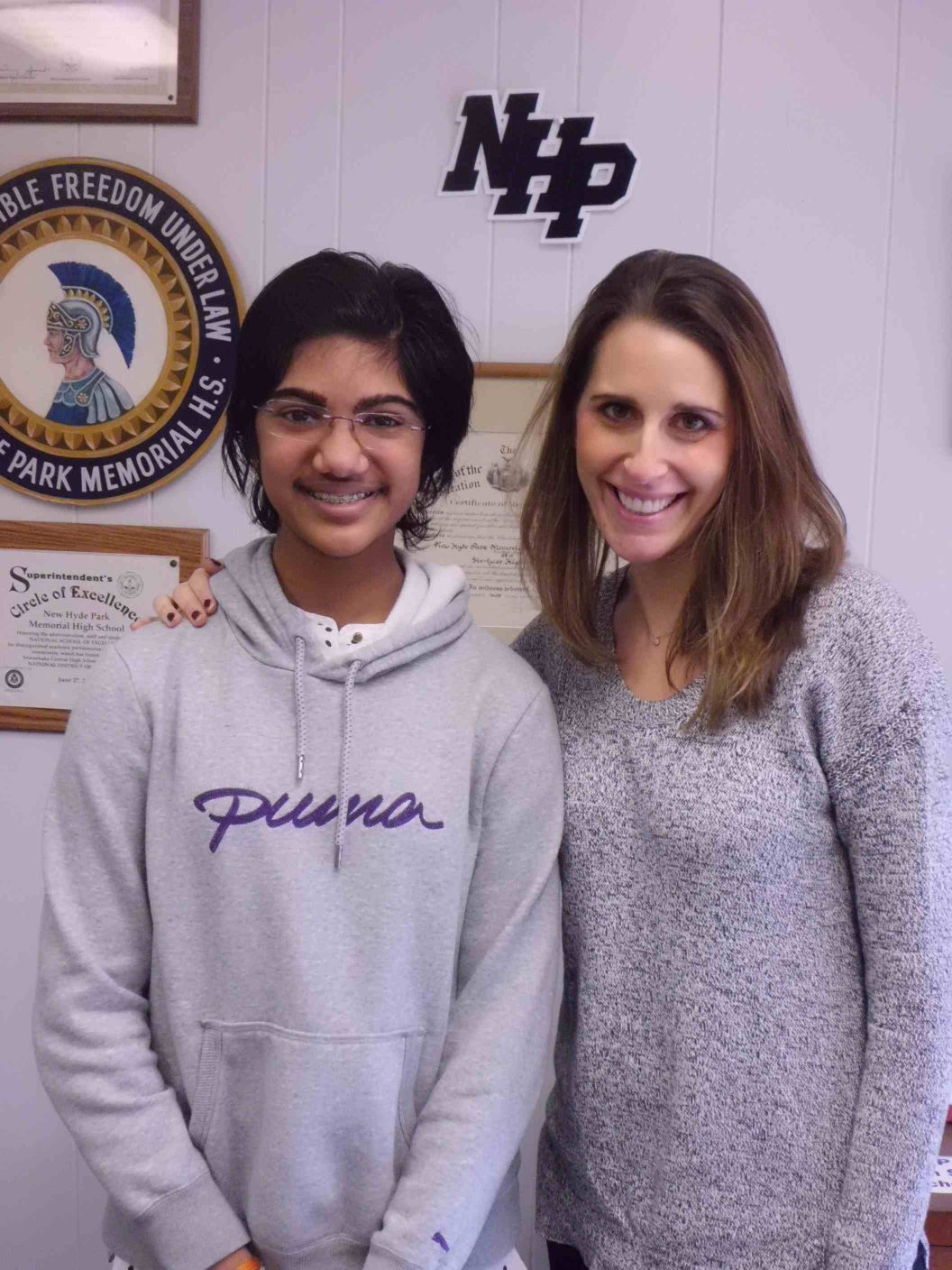As an eighth-grader, Megha Gopal doesn’t qualify for most high school science research contests.
But that hasn’t stopped the New Hyde Park Memorial High School student, 13, from getting her original research recognized on a national scale.
Gopal, a New Hyde Park resident, is one of 25 national semifinalists in the Johns Hopkins University 2016 Center for Talented Youth Cogito Research Awards, qualifying her for up to $600 to support her environmental science research.
She’s the first eighth- or ninth-grader from New Hyde Park Memorial to seek out and qualify for a grant, a testament to how hard she’s always willing to work, science research teacher Alison Radonis said.
“She’s a very special young mind with a lot of potential,” Radonis said. “She’s a really good blending of innate intelligence and a very strong work ethic, which is a good combination for success.”
Gopal said she’s working through the testing phase of her project examining what microorganisms can most quickly break down BPA, a harmful chemical in plastics.
She developed the experiment in November as part of New Hyde Park Memorial’s introductory science research class, she said, and she’s been doing tests in the school’s science labs.
Gopal said she wanted to expand on research by two scientists in India who found a type of fungus actually feeds on the chemical.
Her project examines two fungi, two protysts and two bacteria, she said, and has real-world implications.
“There’s a lot of BPA-filled plastics in our landfills, and those are very harmful to the soil, the plants, all the little organisms living in the soil,” she said. “So this will get rid of the BPA completely.”
Gopal’s father is a computer programmer and her mother is a structural engineer, she said, so she’s been around science her whole life.
Her family’s practice of composting exposed her to environmental science early, she said.
Gopal said she’s also interested in chemistry, biochemistry and the biomedical field.
While she’s still thinking about several different career paths, she said she might go into medicine.
“I don’t really like cuts or sores or dealing with sick people, but I want to do something like the equipment and the techniques behind what the doctors out there are doing,” she said.
Gopal is one of 20 eighth- and ninth-graders in New Hyde Park Memorial’s science research program, Radonis said.
In the first year, science research students learn about experimental design and research methods, she said, before completing their own independent research projects and presenting them at science fairs in the spring.
Gopal had another idea for a chemistry-based project with environmental implications.
She wanted to develop a way to trap nitrous oxide, a potent greenhouse gas produced primarily by the agriculture industry, to reduce the amount that gets trapped in the atmosphere.
It couldn’t be done safely in a high school lab, Radonis said. But Gopal said she wants to conduct the project elsewhere in the future.
“Megha definitely possesses a deeper willingness to do a lot of research, a lot of leg work, to create a much more detailed project than the typical kid,” Radonis said.
Gopal was one of 250 students between ages 13 and 18 who entered the Johns Hopkins contest.
The winners will be announced in late January.
Gopal said larger national research contests, such as the Intel Science Talent Search or the Siemens Competition, are in her sights for the future.
“It would be nice to go to one of those big contests and present my work there,” she said.



